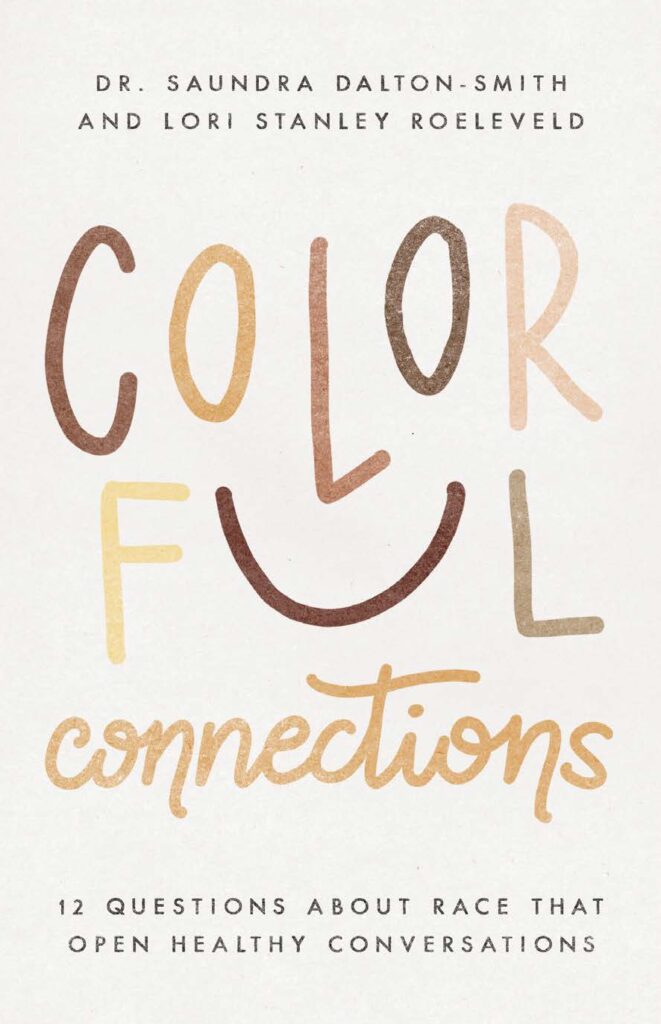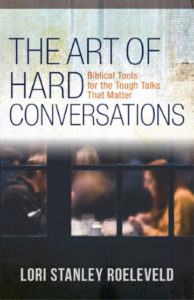When Christians Who Sin are Exposed to the World
 There comes a time in everyone’s life when it’s important to grow up, to step into maturity, to move past childish things. It is that time in the life of the modern church.
There comes a time in everyone’s life when it’s important to grow up, to step into maturity, to move past childish things. It is that time in the life of the modern church.
Specifically, we need to grow up around the topic of sin within the Body of Christ.
The church is making headlines because of individuals and systems that engage in sin, conceal and protect people who commit habitual sin, and people who perpetuate sinful acts under the guise of holiness.
Priests who engage in sexual abuse. Christian leaders, teachers, and speakers who abuse their power to engage in consensual sexual impropriety or outright predatory and harassing behavior. Adultery, pornography, rape, embezzlement, fornication, fraud, deception, and greed have no place in the Body of Christ and yet, there they are. Add hypocrisy to the list.
impropriety or outright predatory and harassing behavior. Adultery, pornography, rape, embezzlement, fornication, fraud, deception, and greed have no place in the Body of Christ and yet, there they are. Add hypocrisy to the list.
Let’s speak, however, like grown-ups when these sins come to light.
First of all, let shock be only a momentary reaction, not a resting place. If sin could be destroyed by church attendance, being raised in a believing home, writing and reading Christian novels, or preaching a thousand moving sermons, then Jesus would not have had to die.
Sin is insidious. Even after we come to Christ, there is a process of maturing, of growing in faith, of increasing in the fruits of the Spirit, of inhabiting our freedom that takes time and isn’t always a straight walk forward. We stumble into potholes of sin along the way. We have an active enemy who sets snares.
If the church could grow up and make a safer, more realistic space to have these conversations shortly after sin is  conceived in our minds, it would go a long way toward preventing systemic cover-ups. Seriously, denomination-wide cover-ups don’t emerge overnight! Numbers of individuals make multiple sinful, selfish decisions for something to reach that level. Let’s agree to search for the exit ramp earlier in the process!
conceived in our minds, it would go a long way toward preventing systemic cover-ups. Seriously, denomination-wide cover-ups don’t emerge overnight! Numbers of individuals make multiple sinful, selfish decisions for something to reach that level. Let’s agree to search for the exit ramp earlier in the process!
If you’re a Christian, develop relationships with two or three other mature believers who you’re free to call and confess sin.
Say – “Hey, I have to confess I’ve been unhappy in my marriage lately and I’ve started daydreaming about a coworker.” Or “I want to talk about the fact that I’ve started use bigger wine glasses and am drinking earlier in the afternoon. I think I’m heading to an unsafe place with alcohol.” Or “I’ve been fooling myself lately about pornography and have to confess I’ve been indulging after everyone goes to sleep at night. What are some ways I can get help with accountability?” “Or, I’m starting to enjoy the attention of one of the women in my writing class a little too much. I need your support to send her clear communication that our flirtation has to end.”

James 5:16 ESV says, “Therefore, confess your sins to one another and pray for one another, that you may be healed. The prayer of a righteous person has great power as it is working.” Confess, pray, and have follow-up conversations. Discuss what action the other person will take if they suspect you’re continuing in sin. Of course, we’re saved by grace, but our testimony is tarnished by habitual sin, so we must take it seriously as early as we perceive it.
It’s wonderful when the church prays for physical healing, but we must not neglect prayers for healing and repentance from sin. Create opportunities for this in the culture of your congregational life.
Second, we need to become comfortable with discussing the truth that not everyone who says they follow Jesus actually follows Jesus.
1 John 3:10 ESV says, “By this it is evident who are the children of God, and who are the children of the devil: whoever does not practice righteousness is not of God, nor is the one who does not love his brother.”
Besides the spiritually immature and those who have lapsed into sin, within the context of the visible church there are  posers and pretenders – some have even managed to deceive themselves. With this understanding, we can view the moment of exposed sin as an opportunity to discuss what it means to truly follow Jesus and the importance of not presuming on the grace that was purchased at such great cost. The revelation of undisclosed sin is an opportunity to truly embrace the gospel.
posers and pretenders – some have even managed to deceive themselves. With this understanding, we can view the moment of exposed sin as an opportunity to discuss what it means to truly follow Jesus and the importance of not presuming on the grace that was purchased at such great cost. The revelation of undisclosed sin is an opportunity to truly embrace the gospel.
While it’s way above our pay grade to make determinations about an individual’s state of salvation, it’s important to be unwaveringly clear that entering a relationship with Jesus should be reflected by a changed life – not a perfect one, but one that is moving in the direction of ever-decreasing forays into sin. Create a culture in your congregation where spiritual growth and maturity are expected and where people do serious work together to encourage it to happen.
Third, see something – say something – to the brother or sister before you – gently and with all humility.
Galatians 6:1-2 ESV says, “Brothers, if anyone is caught in any transgression, you who are spiritual should restore him in a spirit of gentleness. Keep watch on yourself, lest you too be tempted. Bear one another’s burdens, and so fulfill the law of Christ.”
I am forever grateful for mature brothers and sisters along the way who have spoken frankly with me when they saw sin in my life. Never comfortable. Always painful. And yet, the roadblocks of Christ-loving siblings standing between me and the path of destruction have saved me multiple times from shipwrecking my soul. I respect those who found courage to speak up and viewed their confrontations as acts of love.
comfortable. Always painful. And yet, the roadblocks of Christ-loving siblings standing between me and the path of destruction have saved me multiple times from shipwrecking my soul. I respect those who found courage to speak up and viewed their confrontations as acts of love.
Finally, we never speak of these situations as those who live without hope. We inhabit the reality of redemption. In love, we hold out hope for all.
We do not live in a world of monsters, deplorables, or those who can never be forgiven, but in a world where no one is righteous – no, not one – but all are eligible for the forgiveness and grace provided solely through the crucifixion and resurrection of Jesus Christ.
1 John 2:1-2 ESV says, “My little children, I am writing these things to you so that you may not sin. But if anyone does sin, we have an advocate with the Father, Jesus Christ the righteous. He is the propitiation for our sins, and not for ours only but also for the sins of the whole world.”
 We don’t make a display of condemnation nor do we hashtag judgment before a dark world that cannot comprehend light. Some of these sinners are brothers and sisters, who may be rightly suffering public correction because of their positions, but also deserve our love and allegiance as the family of God. We hold out hope for their restoration and do not imagine ourselves as superior to them in any way. How we treat family who fall into sin is as much a part of our testimony of love as anything else we do.
We don’t make a display of condemnation nor do we hashtag judgment before a dark world that cannot comprehend light. Some of these sinners are brothers and sisters, who may be rightly suffering public correction because of their positions, but also deserve our love and allegiance as the family of God. We hold out hope for their restoration and do not imagine ourselves as superior to them in any way. How we treat family who fall into sin is as much a part of our testimony of love as anything else we do.
I’ve gone on too long with this post, but rightly handling public exposure of sin within the church is an important topic to discuss, pray over, and get right in these days of social media and global communication. I’m sure you have thoughts that may differ from mine – I’d love to hear them!
When Christians Who Sin Are Exposed to the World https://t.co/wT7CbIAHPj #Jesus #amwriting #churchfail
— Lori Roeleveld (@lorisroeleveld) September 13, 2018











The Conversation
I claimed salvation for many years before I allowed Jesus to be Lord of my life. I accepted Him as my savior, but then lived life according to the world’s standards and my own standards, and not His. When I finally hit rock bottom, I turned over the reins to Him. Looking back, I can now see what a difference that made in my behavior, my attitude, and my reactions.
I had a few Christian friends, but I distanced myself from most of them while I lived in sin. Thankfully, they never stopped praying for me and now our friendships are restored. Other Christians have dismissed me entirely – perhaps judging me as being beyond redemption, beyond salvation. I’m thankful God thought otherwise.
I agree, Lori. And may I add, we humans see big sin/little sin, and congratulate ourselves saying, “thank you that I am not like other people” as stated in Luke 18:11. We can’t understand all sin is sin. That stealing a piece of candy is the same as murder. That it all separates us from God. It all deserves hell. And Jesus died for it. All of it. Because we don’t have the perfect mind of God.
I’m thankful for friends who pray, and for a God who is full of compassion and mercy.
Lori, this is good. More about being in the world but not of the world! Very important!
This is for all people of God. When I say you, I am addressing all of us.
This is a time when many things will be exposed because of God bringing His righteous judgment to the House of God. His judgement brings more purity which is necessary for people to enter into His next great move which has already started. All things that won’t be allowed in this next move must be left behind. He is shaking His people world wide to help them let go of these things so they can enter in.
As these things come to the surface and are exposed, simply keep on repenting as you become aware of them. Sometimes there are many layers to work through, but repentance does work so if you keep on repenting, God will bring you through to where you need to be. He IS Faithful and He greatly desires that we be free in Christ! It’s very important to follow the Holy Spirit as He brings you through this deep cleaning and transformation. Beating ourselves up about things is a waste of time and slows down the process. Beating other people up builds walls that will be difficult to bring down later.
Regarding your message, we need to come together in unity as His Body. Everything must be compared against Christ who is the standard for all things. We need to use Holy Spirit gift of discernment, not our own thinking or feelings. This is for all people and all situations.
Lori,
Jesus handled confrontation so well – lives were changed! But I struggle with confrontation. When I pointed out lies, I’ve lost friends. Is there a better way to handle this? Should I bring the church in?
“Ye which are spiritual, restore such an one…” Would that someone would have been that roadblock who offered to restore me on my path multiple times. Instead, some looked away, as if it wasn’t their problem – or maybe they were too embarrassed to speak. (Thanks, Lord. I hadn’t thought of that.) Other times I was simply condemned without knowledge or offer of help.
Right now, I am skirting on the edge, and I find a friend’s comments accurate and necessary, but I would appreciate it more if they were a little less abrasive.
I have a picture of a song as my phone background. “Living For Jesus” So far today it has kept me 3 times from sending a text I shouldn’t. Who can sing “living for Jesus, a life that is true, striving to please him in all that I do” without stopping to think about what they are about to do that smacks of “the appearance of evil?”
Well said and thought provoking. Thank you!
Preditor priests hide in the seal of confession. Their confessor cannot break that seal even to other clergy. A remedy may be to require confession to civil authorities for absolution.
Please check out a wonderful and successful ministry called Celebrate Recovery. It is changing lives within the church by providing a safe and confidential path to recovery ifrom any hurt, hang up or habit. It is a Christ centered 12 step recovery program now in over 35,000 churches and prisons. Only 1/3 of participants are there because of drugs or alcohol…the other 2/3’s are there for sexual integrity, eating issues, financial, dysfunctional families, codependency, abuse victims, etc.
Begun in 1991 at Saddleback Church by John Baker and Rick Warren.
The only thing I would love to see added is that we need to get away from this culture of offering “forgiveness” to those who have hurt others — you cannot forgive (and there is no scriptural basis to strive to) something that was not done against you. Too often these situations hit the public eye with teary apologies, not to those who have been harmed, but to the generic “you” of the crowd. And the crowd responds with misplaced mercy and love, calling for restoration and offering forgiveness. If the issue is one between the individual and the church body, and there is genuine repentance, that’s one thing. But in the cases of, say, sexual predators confessing/being exposed to the world, individual people NOT victimized by the predator have no obligation and no right to extend forgiveness for those sins. In fact, it minimizes the victim, especially if there has been no repentance or restoration between them and their abuser. It’s incredibly frustrating to see someone exposed and for all these Christian people to cry out in sympathy and offer their love and acceptance to the predator… while the victim is shushed and told that they have to forgive because after all, everyone else has.
I might agree with you, except for how you have presented this.
>>>>Priests who engage in sexual abuse. Christian leaders, teachers, and speakers who abuse their power to engage in consensual sexual impropriety or outright predatory and harassing behavior. Adultery, pornography, rape, embezzlement, fornication, fraud, deception, and greed have no place in the Body of Christ and yet, there they are. Add hypocrisy to the list.<<<>>>We don’t make a display of condemnation nor do we hashtag judgment before a dark world that cannot comprehend light.<<<
Yes, actually, we do–or we should. When a child or adult gets raped in the church or when a predator is exposed, or when the pastor has embezzled from the building fund, the church should be the FIRST ones to call the police, the FIRST ones to stand up and expose the criminals in their midst for all the world to see, so that the world does see that the Body of Christ protects the sheep from the wolves and is a safe place for people to dwell. We should not be covering it up and hiding it from anyone.
Since you mentioned rape, here's a good article from Boz Tchividjian about dealing with sin in the church:
https://religionnews.com/2017/12/19/winter-inside-the-church-and-the-hope-of-christmas/
Dear anonymous – administering justice, handing out discipline and consequences, setting boundaries for offenders, all can and should be done. Absolutely. Nothing I wrote should have conveyed that we don’t take action. We do. Action isn’t taking taking on Facebook. Action is alerting police, confronting offenders, and ministering to victims
Love the paragraph on accountability especially! Good post!
Thanks, Lori, for putting the light on what so many do not want to talk about.